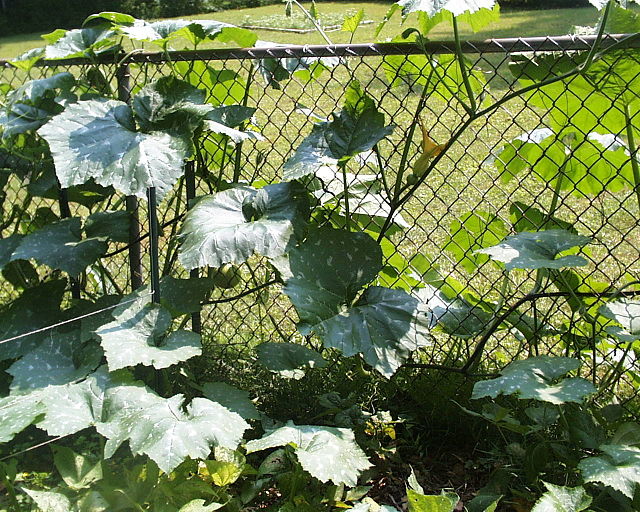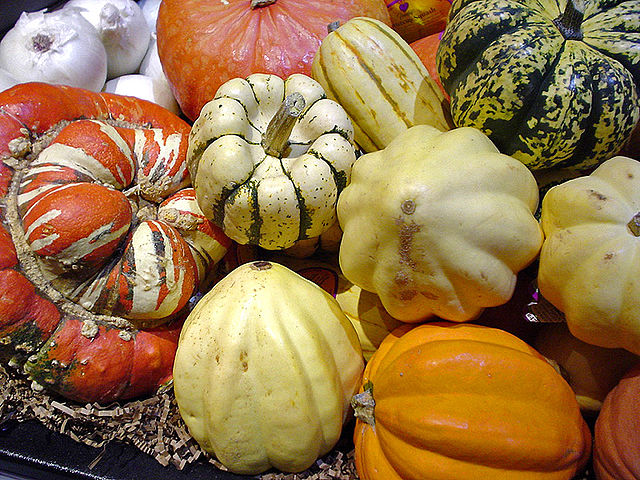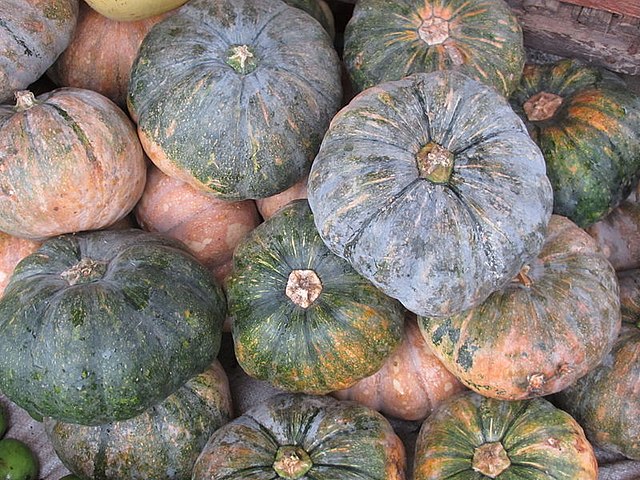Calabaza is the generic name in the Spanish language for any type of winter squash. Within an English-language context it specifically refers to the West Indian pumpkin, a winter squash typically grown in the West Indies, tropical America, and the Philippines. Calabaza is the common name for Cucurbita moschata in Cuba, Florida, Puerto Rico, Mexico and the Philippines. C. moschata is also known as auyama in Colombia, the Dominican Republic and Venezuela; ayote in Central America; zapallo in certain countries of South America; and "pumpkin", "squash", or "calabash" in English-speaking islands.
Calabaza fruits for sale in a supermarket in the Philippines
Calabaza vine
The Filipino dish ginataang kalabasa (calabaza with string beans and shrimp in coconut milk)
Winter squash is an annual fruit representing several squash species within the genus Cucurbita. Late-growing, less symmetrical, odd-shaped, rough or warty varieties, small to medium in size, but with long-keeping qualities and hard rinds, are usually called winter squash. They differ from summer squash in that they are harvested and eaten in the mature stage when their seeds within have matured fully and their skin has hardened into a tough rind. At this stage, most varieties of this vegetable can be stored for use during the winter. Winter squash is generally cooked before being eaten, and the skin or rind is not usually eaten as it is with summer squash.
An assortment of winter squashes
Butternut squash is a variety of winter squash
Calabaza, a winter squash common in Cuba, Florida, Puerto Rico, and the Philippines






